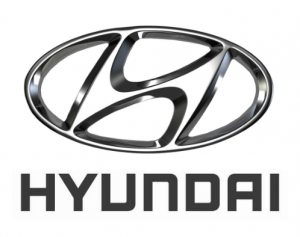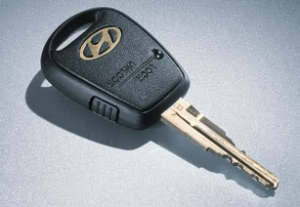Get New Keys Today! (323) 538-3170[vc_row][vc_column width=”1/1″][vc_column_text]
Get Your Hyundai Car Keys In Los Angeles, CA!
 Buying that Hyundai car model is probably a dream accomplishment for you. It may be something you have saved a really long time for and now that it has finally happened, you cannot hide your excitement. However, like most tiny items we own, car keys are prone to be lost or misplaced. If it were still in the 1920s then this would be nothing you have to worry about. A visit to the locksmith or car dealer would have you get the spare key in less than an hour. A hardware store would also get you a spare key for your car. Today, however, security concerns have made it such that the company is making better and more complicated keys that make duplication expensive and almost impossible. If you own a Hyundai, it is critical that you know the different Types of Hyundai Car Keys so that you are knowledgeable on what type of key you will need to be made when your car key is lost. A good locksmith will be able to make a key for you but they need to know what type of key you use. Here is a breakdown of the types of Hyundai car keys.
Buying that Hyundai car model is probably a dream accomplishment for you. It may be something you have saved a really long time for and now that it has finally happened, you cannot hide your excitement. However, like most tiny items we own, car keys are prone to be lost or misplaced. If it were still in the 1920s then this would be nothing you have to worry about. A visit to the locksmith or car dealer would have you get the spare key in less than an hour. A hardware store would also get you a spare key for your car. Today, however, security concerns have made it such that the company is making better and more complicated keys that make duplication expensive and almost impossible. If you own a Hyundai, it is critical that you know the different Types of Hyundai Car Keys so that you are knowledgeable on what type of key you will need to be made when your car key is lost. A good locksmith will be able to make a key for you but they need to know what type of key you use. Here is a breakdown of the types of Hyundai car keys.
1. The basic keys
 These keys were most common in the 1900s. They have absolutely no security features other that the unique cut the come with. The shank of the key is cut just like your house key with several grooves. These keys just like the typical house keys are easy to copy and a locksmith will not require any extra equipment to come up with a duplicate for you. They will use the machines and tools that can cut other keys. They are therefore the cheapest to copy. Any locksmith can come up with a key. The only advantage of going to a dealer would be to get Hyundai’s branding at the head of the key.
These keys were most common in the 1900s. They have absolutely no security features other that the unique cut the come with. The shank of the key is cut just like your house key with several grooves. These keys just like the typical house keys are easy to copy and a locksmith will not require any extra equipment to come up with a duplicate for you. They will use the machines and tools that can cut other keys. They are therefore the cheapest to copy. Any locksmith can come up with a key. The only advantage of going to a dealer would be to get Hyundai’s branding at the head of the key.
Most key fobs today have a remote/ transmitter at the core of the keys set. Replacing this fob would be a little bit more expensive although one can go around this cost by pressing certain key combinations to program it. So the owner with a manual will have a way he can program the key themselves to save costs.
2. Transponder keys
These were the most common keys that were used after the mid- 1990s. They have a transponder chip placed in a plastic head of the car key. The chip functions by emitting signals to a receiver places at the ignitions. If this receiver detects code that is not right or consistent, the car will not start because it means that one is using the wrong key. The shank of the transponder key is either the basic key / a laser cut key. The main difference between a transponder key and a basic key is the fact that the chip in the transponder key needs to be programmed before the use so that the car can start. A Hyundai car owner can also have a very basic car key made. With this key, you will do everything except start the car’s engine. It will therefore come in very handy in case one has locked their car keys inside the car.
3. Laser cut keys
The shanks of these keys are thicker than that of most other keys and they have fewer grooves. Cutting these keys is a lot more expensive because the machines required are costly. The transponder chips of the cars need to have the transponder programmed by a certified car dealer or the car dealership. They are a lot like traditional transponder key except for the laser cut shank.
4. Smart keys
These are not keys from the basic definition of the term. The fobs of these keys are inserted in the advanced system of the dash. They allow the user of the car to turn on the car just by pressing a button. Its main form of security is the fact that they use different codes each time they are used. These codes are verified before the car can start. They are also difficult to duplicate and can currently only be replaced by a dealer. Unlike other types of Hyundai car keys, these are a lot more expensive to replace. They are placed in your pocket / purse and may be that easy to lose.
Hyundai Models:
[/vc_column_text][vc_row_inner][vc_column_inner width=”1/2″][uncode_list icon=”fa fa-automobile” icon_color=”main-color” css_animation=”left-t-right”]Hyundai SUV’s/Crossover/MPV Car Models
- 2.0 GL M/T
- 2.0 GL A/T
- 2.0 GLS A/T
- 2.0 R-eVGT GL 4WD A/T
- Hyundai New Tucson
- 2.0 E GL 2WD A/T
- 2.0 S GLS 2WD A/T
- 2.0 S GLS 2WD (dsl) A/T
- 2.0 L 4WD (dsl) A/T
- Hyundai Galloper
- Hyundai Santa Fe (2001–present)
- 2.2 R-evgt 4×2 M/T
- 2.2 R-evgt 4×2 A/T
- 2.2 R-evgt 4×4 A/T
- Hyundai Grand Santa Fe
- 2.2 4WD A/T
- Hyundai Terracan
- Hyundai Trajet
[/uncode_list][uncode_list icon=”fa fa-automobile” icon_color=”main-color” css_animation=”left-t-right”]
Hyundai Pick-Up/Trucks and Vans Car Models
- Hyundai Libero
- Hyundai Porter (1977–present)
- Hyundai Starex (1997–present)
- Hyundai Grand Starex
- CVX Luxury A/T
- Hyundai 4.5 to 5-ton truck
- Hyundai 8 to 25-ton truck
Hyundai Concept Car Models
- Hyundai Blue-Will
- Hyundai Nuvis
- Hyundai Portico
[/uncode_list][/vc_column_inner][vc_column_inner width=”1/2″][uncode_list icon=”fa fa-automobile” icon_color=”main-color” css_animation=”left-t-right”]
Hyundai Sedan and Hatchback Car Models
- Hyundai Accent
- 1.4 E M/T
- 1.4 E CV/T
- 1.6 E (dsl) M/T
- 1.4 S GL M/T
- 1.6 E (dsl) A/T
- Hatch 1.6 E (dsl) M/T
- 1.4 S CV/T
- 1.6 (dsl) DC/T
- Hatch 1.6 E (dsl) A/T
- 1.4 L CV/T
- Hatch 1.6 (dsl) DC/T
- Hyundai Atos (1997-2007)
- Hyundai BlueOn
- Hyundai Dynasty (1996)
- Hyundai Elantra (1990–present)
- Hyundai Eon
- 0.8 GL M/T
- 0.8 GLS M/T
- Hyundai Equus (1999–2016)
- Hyundai Excel (1985–2000)
- Hyundai Lavita (2007–2010)
- Hyundai Genesis (2008–present)
- Hyundai Genesis Coupe (2008–present)
- 2.0L FL Turbo A/T
- 2.0L FL Turbo Brembo M/T
- 2.0L FL Turbo A/T
- 3.8L V6 Brembo M/T
- Hyundai Getz (2002–2011)
- Hyundai Grandeur or Hyundai Azera (1986–present)
- Hyundai HB20 (2012–present)
- Hyundai Grand i10 (2007–present)
- 1.0 E M/T
- 1.0 S M/T
- 1.0 E A/T
- 1.0 S A/T
- 1.0 L A/T
- 1.2 L A/T
- Hyundai i20
- Hyundai i20 Cross Sport
- 1.4 GL M/T
- 1.4 GL A/T
- 1.4 GL (diesel) M/T
- Hyundai i20 WRC
- Hyundai i30 (2007–present)
- Hyundai i40 (2011–present)
- Hyundai ix20 (2010–present)
- Hyundai Mistra (2013–present)
- Hyundai Scoupe (1988–1995)
- Hyundai Sonata (1985–present)
- 2.4 GLS A/T
- 2.4 GLS Premium A/T
- Hyundai Stellar (1983–1997)
- Hyundai Veloster (2011-present)
- Hyundai Veracruz (2007–2015)
- Hyundai Tiburon (1996–2009)
[/uncode_list][/vc_column_inner][/vc_row_inner][vc_column_text]
Cities Serviced:
[/vc_column_text][vc_row_inner][vc_column_inner width=”1/4″][uncode_list icon=”fa fa-map-marker” icon_color=”main-color” css_animation=”left-t-right”]
[/uncode_list][/vc_column_inner][vc_column_inner width=”1/4″][uncode_list icon=”fa fa-map-marker” icon_color=”main-color” css_animation=”left-t-right”]
[/uncode_list][/vc_column_inner][vc_column_inner width=”1/4″][uncode_list icon=”fa fa-map-marker” icon_color=”main-color” css_animation=”left-t-right”]
[/uncode_list][/vc_column_inner][vc_column_inner width=”1/4″][uncode_list icon=”fa fa-map-marker” icon_color=”main-color” css_animation=”left-t-right”]
[/uncode_list][/vc_column_inner][/vc_row_inner][/vc_column][/vc_row]
